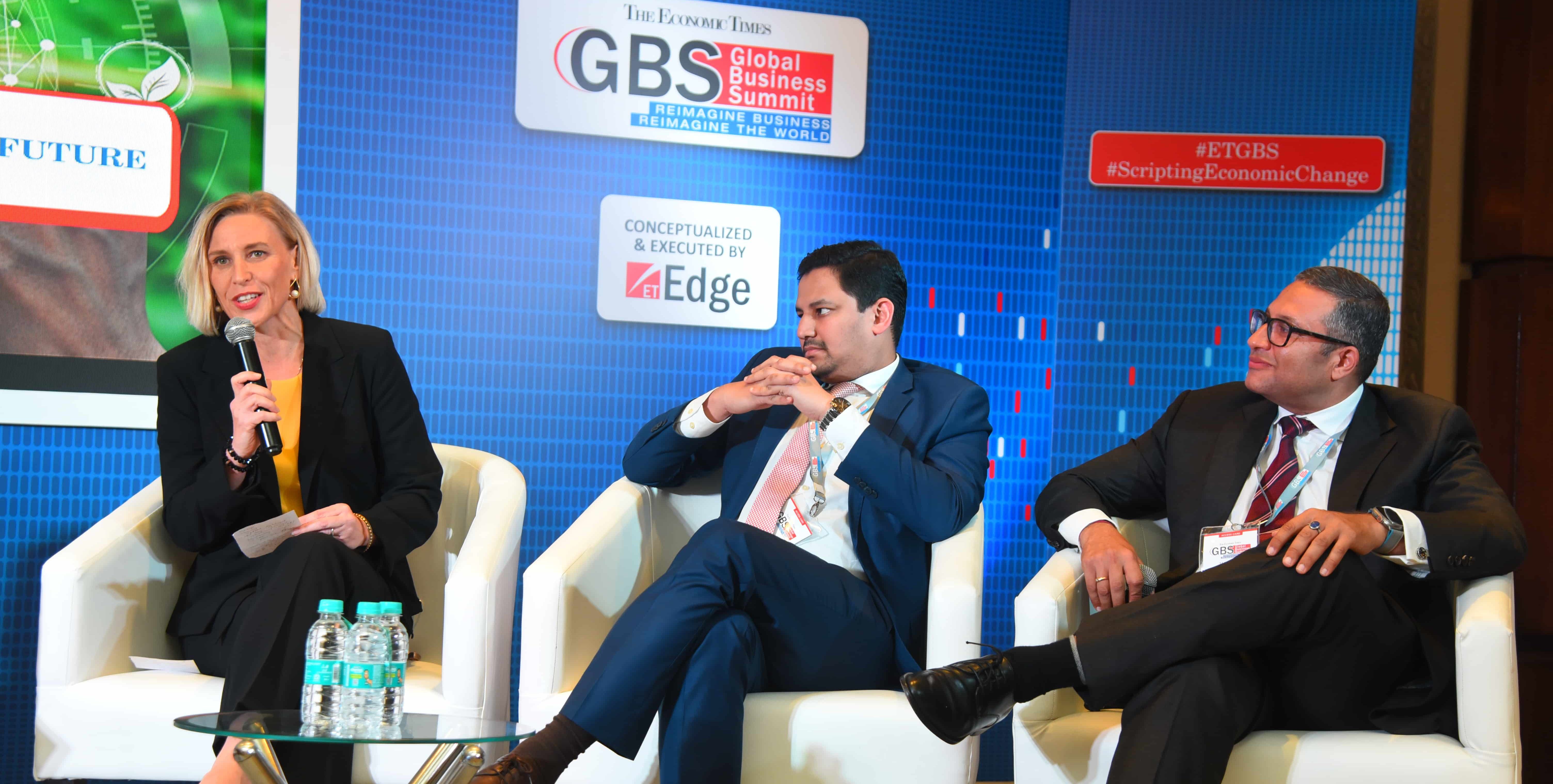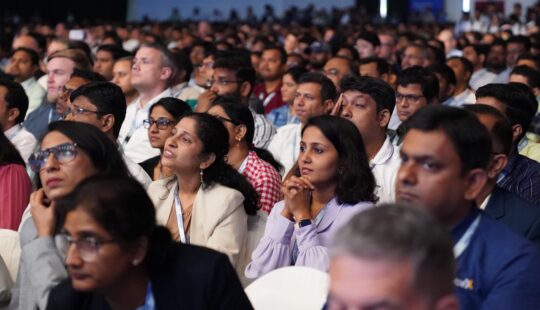Last week, I had the honour of representing SAP at The Economic Times’ Global Business Summit in New Delhi, India, where some of the world’s leading politicians, academics, and decision-makers congregated to discuss the future direction of India, and of our planet.
I joined a panel discussion focused on strategies to create a resilient, reliable, and ready future, joining luminaries from the United Nations Development Programme, UN India, Temasek, TAQA, JLL, and Bain & Company. Reflecting on the discussions at the conference, I believe there are three key insights for us all to consider.
India’s Sustainability Ambitions Underpin the Need for a Just Transition
India is on a remarkable development path. The digital enablement of services has seen exponential growth, fuelled by focused policy attention. Meanwhile, the country has also outlined its plan to move to Net Zero by 2070. The 450GW Green Energy Corridor project to transfer power from renewable energy rich places across the country is an example of tangible change.
The opportunities for India are huge. As Jean-Pascal Tricoire, CEO and Chairman of Schneider Electric, said at the event, “India has a chance to become one of the future leaders by building an energy system that is completely different. India is [at the start] of its construction of electrical infrastructure, which will be based in the future on renewables. Today, the greenest, cheapest, and fastest way of saving is via energy efficiency. With digitisation, you can immediately save up to 30 per cent of energy efficiency.”
The move to renewable energy has wide-ranging benefits from a financial, organisational, and individual perspective – and will benefit us in areas as fundamental as the air we breathe. During the event the air quality in Delhi degraded to three times below what’s considered healthy by the World Health Organisation. It’s a stark reminder of the work we still have to do.
To Do Their Part, Businesses Will Need to Go Beyond Environmental Compliance
The traditional view of sustainability is changing. It is no longer a compliance requirement, an additional cost, or a “nice-to-do”. Today, 45 per cent of Indian business leaders say sustainability will be materially relevant to their financial results within the next 5 years.
Indian businesses have a great chance to take the lead in this area. India was the first country to mandate corporate social responsibility in 2013, and the new ‘BRSR’ requirements for the top 1,000 companies to report ESG outcomes is a welcome sign that performance isn’t just about financial results.
But now the opportunity is to go beyond compliance and to instil sustainability into every business process and decision. That requires action – for example, while 59 percent of Indian business leaders see a strongly positive correlation between profitability and taking environmental action, only 22% are incentivised for meeting sustainability KPIs.
Innovation Through Data Is the Key to Meeting Climate Challenges
The desire and willingness to take climate action is there, but more still needs to happen to reach our sustainability goals whether in India, or around the world.
For organisations, operationalising sustainability performance into key processes plays a critical role to achieve improved climate outcomes. Sitting at the heart of that change is data and an empowered team. By arming our people with an integrated view of environmental, financial, and operational data, we can ensure financial and sustainability performance work in tandem.
A great example of this is WayCool, a food and agritech company in India. They created an integrated dashboard to pull environmental data from IoT devices and financial and operational data from its ERP – providing insights on their energy and water usage, and waste management and their financial impacts. WayCool has not only reduced its carbon emissions, but saved about $205 for every ton of carbon it avoided.
India, and Indian businesses, have a unique opportunity to lead Asia and the world in our work against climate change. But India’s ambition and strength in innovation can help realise the huge opportunities sustainable business offers. Together, we can work to make a real difference to the health of our people and the planet.



